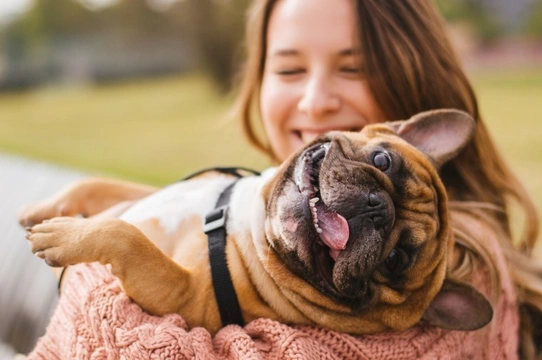
How to stop your dog from turning into a massive pain during coronavirus restrictions
The social distancing measures that came into being in the UK on the 23rd March 2020 have greatly curtailed the movement of people and the amount of contact that we have with each other, and are tasked with strongly encouraging people to stay at home other than if essential.
One element of this is the restriction on exercising outside of the home; and taking our one form of exercise per day as the only opportunity we have under the current restrictions to walk our dogs can be rather limiting. There are a number of factors surrounding social distancing that dog owners might find to be problematic, and this huge upheaval in how we’re living at the moment all has an impact on our dogs too.
The combination of changes that social distancing and our own moods and how we’re handling things can cause might lead to changes in our dog’s behaviours and responses in turn, which are all likely to add to our own stress and frustration, but are natural and understandable given that dogs don’t have a clue why their worlds have suddenly changed overnight!
This can all mean that even the nicest and usually most well-mannered of dogs might become a massive PITA in short order due to coronavirus social distancing restrictions and their knock-on effect. With this in mind, this article will give you some tips and advice on how to avoid and counteract this. Read on to learn more about how to stop your dog from turning into a massive PITA duding social distancing limitations.
Balance their food intake
If your dog is exercising less, they need to be fed less. Otherwise, they will not only get fat but also be even more of a handful, as they’ll have more energy to burn off than they’re getting the opportunity to use up.
You might want to consider changing what type of food you feed in some cases too, if their diet is designed to support a high-energy lifestyle.
Don’t fill them with treats
Sitting around on the sofa watching Netflix and eating biscuits is what is keeping many of us sane; but we also need to bear in mind that if this is how every day looks, it is also going to make us put on a lot of weight.
If your dog is taking part in this with you, slipping them the odd biscuit might become part of the routine, and if you’re home more in general, this will mean in many cases that you’re unconsciously giving your dog more treats than normal too.
Keep a check on this and measure out a day’s treats along with your dog’s food intake, or face the consequences of a full of beans dog and not enough walks!
Maintain the rules
Keeping the rules you manage your dog by consistently even in times of upheaval is important; willingly let your dog break a rule once, and in their mind, it is not a rule anymore. That means that you either have to accept that you now permit the behaviour in question, or start from scratch re-establishing the rule once more.
Inconsistency in terms of enforcing rules really confuses dogs, and is one of the fastest ways to ensure they act up and become hard work to be around.
Be consistent
Consistency is important, in terms of your handing of your dog and how you respond to them. The coronavirus restrictions and concerns over loved ones and our own health mean that many of us are stressed and anxious; this will rub off on our dogs to a degree.
Try to minimise the impact of this by remaining as consistent as you can in terms of your behaviours and responses to your dog.
Make walks really active
When it comes to walking your dog outside of the home, try to make their walk really engaging and active. A dog that comes back from their walk a bit tired and mentally fulfilled will be much easier to manage and less likely to drive you mad than one that feels as if they’ve barely left the house!
Make provision for play and toileting
Make efforts to play with your dog and engage with them while you’re home, so that they don’t feel neglected or bored. It is important to balance this with time alone so your dog doesn’t get so used to continual attention that they won’t tolerate it any other way; but pay your dog some attention and of course, remember that their routine has changed too, and they might need to go out to toilet at different times as a result.
Don’t let the kids sabotage your efforts
If you’ve got children at home with your dog, this can go one of two ways; dog and child will help to entertain each other, or your child makes things worse by teasing your dog, winding them up, giving them treats, or otherwise sabotaging your efforts to keep things on an even keel.
Make sure this doesn’t happen by ensuring proper supervision, and talking to your child about their behaviour with the dog and why it is important to be good.
Keep your dog mentally active
Finally, mental stimulation engages and fulfils dogs just as much as physical exercise; if you can prevent your dog from getting bored and maintain the parameters of their life as far as possible, they will be far more pleasant to be around all day long.
Look at interactive games, short training sessions, and toys and activities that make them think, and they’ll be nicer to have around and less likely to get into mischief!



